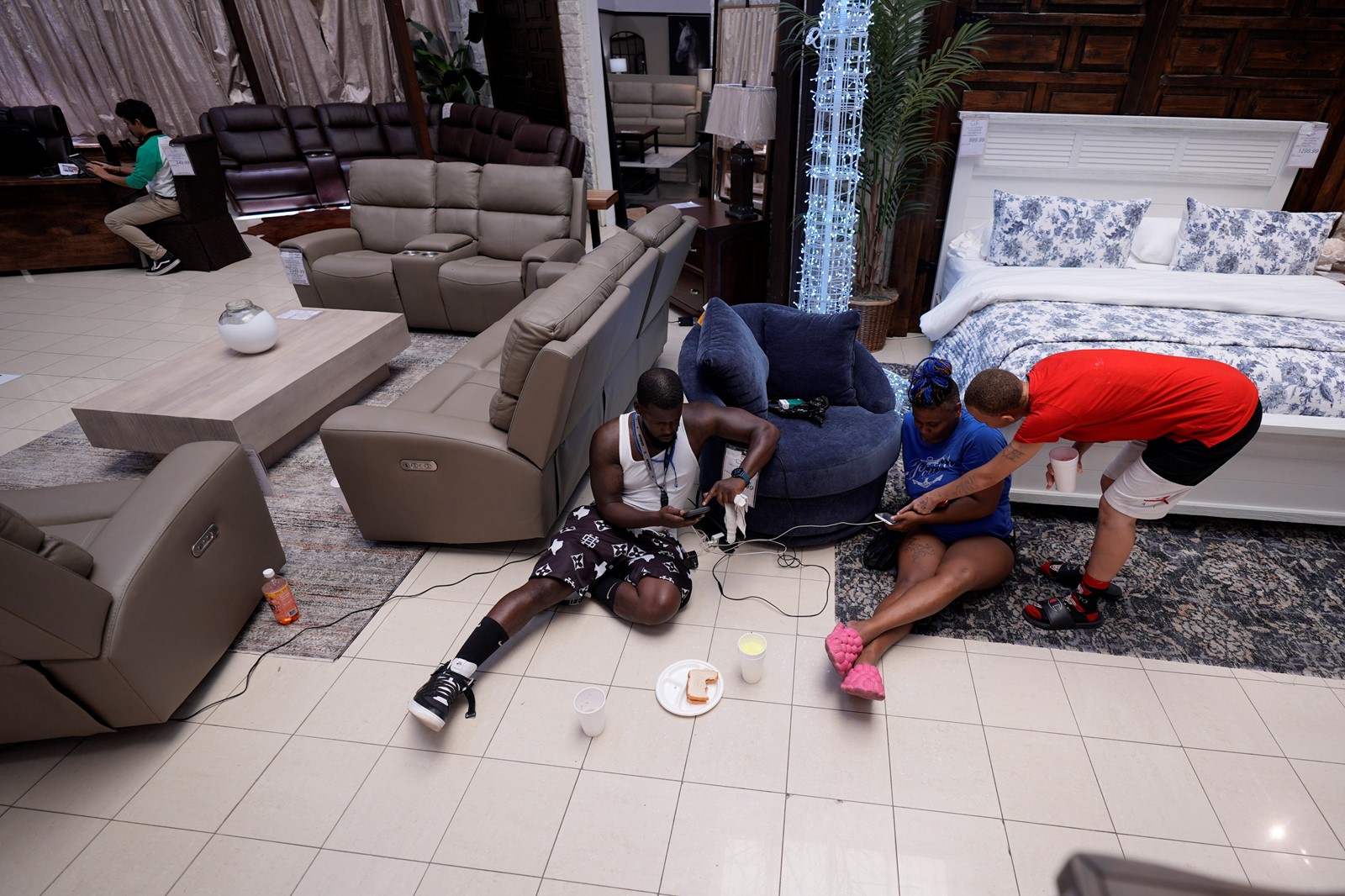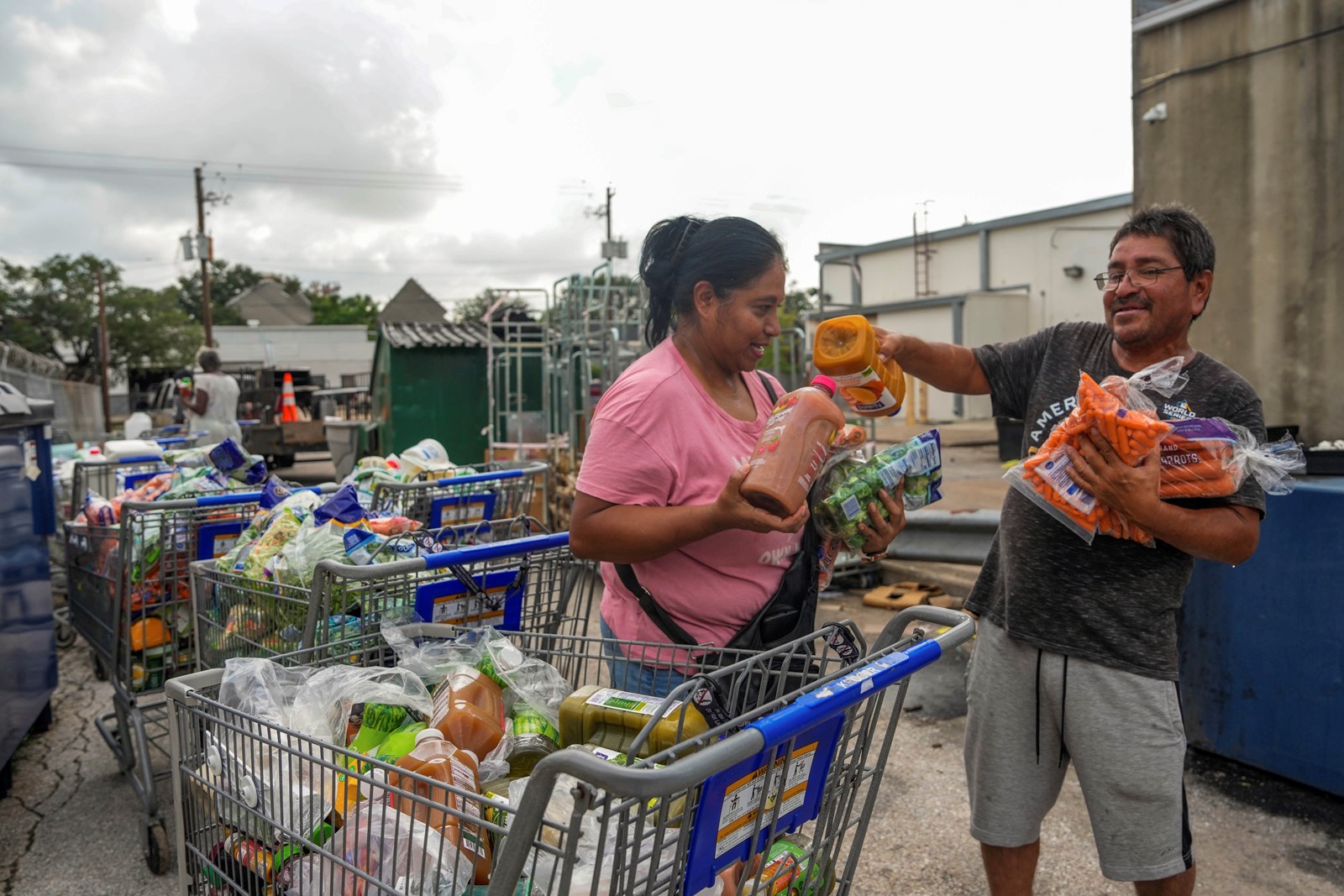

HOUSTON>> Houston’s biggest utility came under mounting pressure Wednesday over its response to Hurricane Beryl, as nearly 1.4 million area homes and businesses remained without power and frustrated residents searched for places to cool off, fuel up and grab a bite.
City Council member Abbie Kamin called the extended lack of power since Monday’s storm a “life safety concern.”
“We say ‘everything we can do’ to get the lights back on. In my opinion, respectfully, they should be on,” Kamin told a CenterPoint Energy executive during a council meeting.
CenterPoint “needs to a do a better job,” restoring power, Mayor John Whitmire said. “That’s the consensus of Houstonians. That’s mine.”
Residents who sought out community centers for a rest, air conditioning and a meal wondered how the nation’s fourth-largest city could buckle under a storm that packed less punch than many others that have pummeled the area over the past two decades.
Beryl came ashore as a Category 1 hurricane, the weakest type, but has been blamed for at least seven U.S. deaths — one in Louisiana and six in Texas — and at least 11 in the Caribbean.
“Maybe they thought it wasn’t going to be so bad, but it’s had a tremendous effect. They needed to be better prepared,” said construction worker Carlos Rodriguez, 39, as he gathered apples, oranges and ready-to-eat meal packs at a food distribution center. His family, with two daughters, ages 3 and 7, was struggling, he said.
“We have no power, we’re going to bed late, and I’m using a fan made out of a piece of cardboard to give my kids some relief,” Rodriguez said.
Outages peaked at 2.7 million customers after Beryl made landfall Monday in Texas, according to PowerOutage.us.
Brad Tutunjian, the CenterPoint vice president for regulatory policy who faced pointed questions from the City Council, defended the company’s response. He said more than 1 million customers had their power restored by Wednesday morning, although the company’s online tracker put the figure at slightly less than a million at the time. “To me, I think that’s a monumental number right there,” Tutunjian said.
The company acknowledged that most of the 12,000 workers it brought in to help the recovery effort were not in the Houston area when the storm arrived. Initial forecasts had the storm blowing ashore much farther south along the Gulf Coast, near the Texas-Mexico border, before heading toward Houston.
The company would not ask third-party workers from other companies and municipalities to preposition and “ride out” the storm, “because that is not safe,” Tutunjian said. Instead, they are asked to be as close as possible to respond after the storm moves through.
One major difficulty with Beryl was restoring power knocked out by fallen trees and branches across the area, Tutunjian said.
“When we have storms such as this, with the tree completely coming down … taking out our lines and our poles, that’s where all the time comes in to do the restoration work,” he said.
But council members pressed the executive about why the company, which has been in the Houston area for about 100 years, hasn’t been more aggressive in trimming trees during calm weather or putting more of its power lines underground. The company has been putting new lines underground in residential areas for decades, Tutunjian responded.
Two council members said they received a text about a house that burned down after reporting a downed power line. The texts reported the fire department said it could not do anything, and the utility did not respond.
It’s hardly the first time the Houston area has faced widespread power outages.
In 2008, Hurricane Ike made landfall on Galveston Island as a Category 2 storm, bringing flooding and wind damage to the Houston area. It left about 2.2 million CenterPoint customers without power, according to the Harris County Flood Control District, which said that 75% of the power was restored within 10 days.
Houston was hit hard in 2021 when Texas’ power grid failed during a deadly winter storm that brought plunging temperatures, snow and ice. Millions of Texans lost power and were left to ride out the storm in frigid homes or flee.


 PREVIOUS ARTICLE
PREVIOUS ARTICLE
